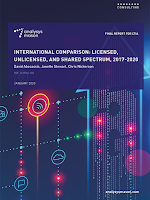 On more than one occasion I have written pieces for the Free State Foundation arguing that online privacy oversight should take place exclusively at the federal level. More specifically, at the FTC, the expert agency with substantial institutional knowledge regarding, and experience with, this topic.
On more than one occasion I have written pieces for the Free State Foundation arguing that online privacy oversight should take place exclusively at the federal level. More specifically, at the FTC, the expert agency with substantial institutional knowledge regarding, and experience with, this topic.Members of both the House and the Senate, meanwhile, have drafted legislation that would transfer FTC authority to an entirely new agency. Two Representatives from Silicon Valley, Zoe Lofgren (D) and Anna Eshoo (D), introduced the Online Privacy Act in November 2019. As I described at the time, that bill would create specific consumer privacy rights (including the authority to access, correct, delete, and transfer personal data) and empower new bureaucracy, the independent Digital Privacy Agency, to enforce its provisions.
The FTC released a report on February 25, 2020, that serves as reminder of the important role that it plays. The Privacy & Data Security Update: 2019 offers an overview of the agency's enforcement efforts over the course of last year. A few highlights:
- A $5 billion penalty and additional restrictions imposed on Facebook for violating a 2012 Order – "the largest ever imposed on any company for violating consumers' privacy and almost 20 times greater than the largest privacy or data security penalty ever imposed worldwide;"
- A $5.7 million settlement with Musical.ly – now known as TikTok – regarding charges that it collected children's personal data in violation of the Children's Online Privacy Protection Act (COPPA);
- A $170 million penalty for YouTube and Google as a result of alleged violations of COPPA;
- A settlement with Equifax, totaling as high as $700 million, in response to a data breach affecting nearly 150 million people; and
- 13 enforcement actions against companies for allegedly making false promises relating to the EU-U.S. Privacy Shield framework.
















